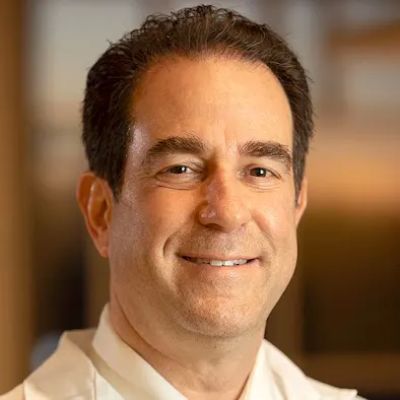- why-legacy-matters-the-importance-of-heart-health-across-generations
- building-daily-habits-that-shape-heart-health-for-life
- intergenerational-lessons-on-heart-health-and-prevention
- case-study-real-impact-of-a-healthy-heart-legacy
- modern-lifestyle-risks-and-how-to-break-the-cycle
- practical-steps-to-cultivate-a-heart-healthy-legacy
1. Why Legacy Matters: The Importance of Heart Health Across Generations
When we talk about the legacy we leave behind, we often think of finances, values, or achievements. But what about our health? Specifically, the legacy of a healthy heart. Cardiovascular wellness doesn’t just affect one generation—it ripples through families. Genetics play a role, yes, but lifestyle choices have an even greater impact. A child growing up in a household where balanced meals, regular movement, and stress management are valued is far more likely to continue those habits into adulthood. And this becomes a blueprint passed down, knowingly or not.
In America, heart disease remains the leading cause of death. Despite this, many people don’t realize that long-term heart health starts with daily decisions. Teaching and modeling those behaviors early could mean the difference between a future filled with medical treatments or one powered by vitality and independence. If there’s a single health investment that gives back for generations, it’s creating the conditions for a strong heart legacy.

2. Building Daily Habits That Shape Heart Health for Life
Healthy hearts don’t happen overnight. They are built through consistent, seemingly small actions. Starting your day with 30 minutes of movement—whether it’s a brisk walk, bike ride, or dance session—gets the blood flowing and reduces long-term blood pressure. Choosing whole grains over refined carbs, reaching for fruit instead of processed snacks, and staying hydrated all contribute to the bigger picture of cardiovascular wellness.
One overlooked factor is sleep. Studies from Harvard and the Mayo Clinic highlight that individuals who sleep fewer than six hours per night are significantly more likely to develop heart conditions. Sleep affects hormone regulation, inflammation, and metabolism—all linked to heart performance. Creating routines around sleep, just like diet and activity, can be a foundational part of maintaining a healthy heart legacy.
Encourage these patterns early. Involve children in meal preparation, talk about the importance of movement, and set screen time boundaries that support better rest. Making heart health a family norm instills lifelong awareness and responsibility.
Atlanta Heart Specialists
atlanta heart specialists
4375 Johns Creek Pkwy #350, Suwanee, GA 30024, USA

3. Intergenerational Lessons on Heart Health and Prevention
There’s immense power in storytelling. When grandparents share how lifestyle choices affected their heart health—both positively and negatively—it resonates deeply. Perhaps a grandfather survived a heart attack in his 50s due to years of smoking and inactivity. His journey through cardiac rehab can serve as both a cautionary tale and a story of resilience.
On the flip side, there are inspiring accounts where generations have changed the course of family health. Take the Wilson family from North Carolina. After two relatives passed from strokes before the age of 60, the remaining siblings decided to change course. They began walking together every morning, shared plant-based recipes, and educated their kids on the dangers of excessive sodium. Ten years later, none of them have experienced heart complications. It’s a testament to the fact that family can either inherit disease—or collectively fight it.
We encourage you to explore resources like HeartCare Hub where families can access curated guides, personalized heart-care plans, and community support to continue building these legacies together.
4. Case Study: Real Impact of a Healthy Heart Legacy
Meet Laura, a 36-year-old mother of two in Minnesota. Her father died of heart disease at age 58. Laura vividly remembers the ambulance lights, the funeral, and the questions no one could answer. That loss sparked her dedication to understanding cardiovascular risk. She joined a local fitness group, started preparing meals at home, and regularly checked her blood pressure. But more importantly, she shared everything with her kids.
“I tell my children why I use olive oil instead of butter, why we limit soda, and how running helps my heart,” Laura says. Her son, now 11, runs with her on weekends, and her daughter enjoys helping make their famous veggie stir-fry. Laura’s approach is shaping her children’s default mindset—where heart health isn’t a punishment, but a lifestyle of empowerment.
What’s remarkable is that Laura's choices are rewriting her family’s health history. She’s not just avoiding a disease—she’s dismantling a pattern. And that’s what a legacy of a healthy heart truly means.
5. Modern Lifestyle Risks and How to Break the Cycle
In today’s digital world, sedentary behavior is more common than ever. From office jobs to binge-watching shows, the average American now spends over 10 hours a day sitting. Add in ultra-processed foods and chronic stress, and you’ve got a recipe for heart disease—even in younger populations.
Breaking this cycle requires a mindset shift. Instead of viewing heart-healthy choices as restrictive, we must reframe them as investments. For example, taking a 10-minute stretch break every hour might seem trivial, but over time, it supports circulation, reduces blood pressure, and lowers inflammation. Choosing grilled chicken over fried could spare your arteries thousands of fat-laden calories annually.
It’s also important to normalize conversations about heart checkups. Just like you schedule annual physicals or vision tests, make heart health screenings routine. Encourage your family members to know their numbers—cholesterol, blood pressure, triglycerides—and take early action if red flags appear. HeartCare Hub offers screening guides and doctor-approved plans tailored for all ages, helping Americans take proactive steps regardless of their health background.
6. Practical Steps to Cultivate a Heart-Healthy Legacy
Building a lasting legacy requires more than just knowledge—it takes action. Here are key practices to integrate into your life and pass on to the next generation:
- Cook together as a family: Share the joy of preparing heart-friendly meals with whole foods, lean proteins, and healthy fats.
- Prioritize movement: Whether it’s biking, walking the dog, or dancing in the living room, make activity fun and regular.
- Monitor emotional health: Chronic stress impacts heart rhythm and blood pressure. Teach mindfulness, journaling, or relaxation techniques as part of emotional hygiene.
- Celebrate milestones: Whether it’s lowering cholesterol or running your first 5K, mark achievements to reinforce positive habits.
Most importantly, talk about it. Let heart health be a regular conversation, not a taboo or an afterthought. When you share your journey openly, your children, friends, and even community will follow. The legacy of a healthy heart isn’t just about avoiding disease—it's about living fully, together, across generations.






















Deborah Heart and Lung Center
deborah heart and lung center
200 Trenton Rd, Browns Mills, NJ 08015, USA